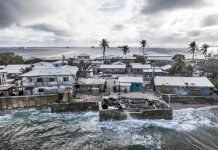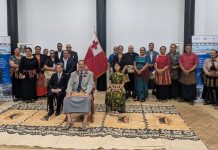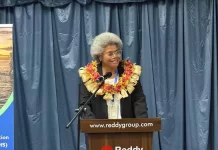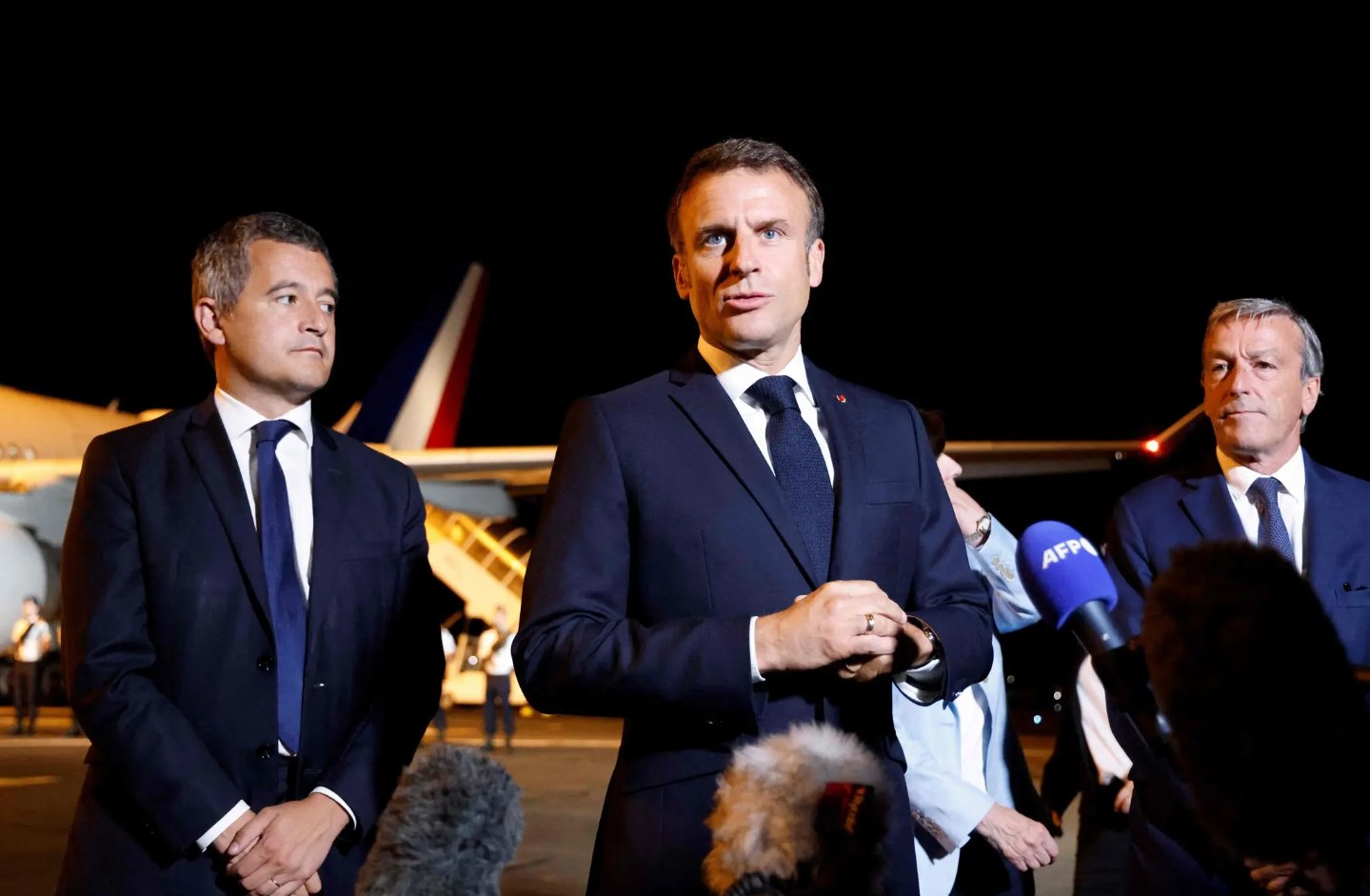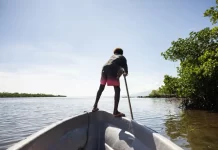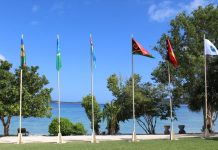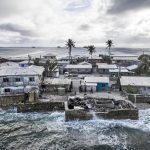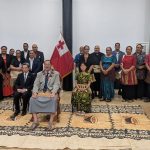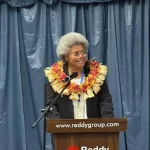French President Emmanuel Macron will arrive in Vanuatu today as part of his Pacific tour to discuss his Indo-Pacific policy and recommit France to the region.
Sources say this trip is extremely significant because no French president has ever previously visited non-French territory
While in Vanuatu, together with Prime Minister Ishmael Kalsakau, he will attend the Melanesian Arts Festival tomorrow afternoon in Saralana Park.
The president will also meet with government leaders to discussions on mutual interests, signing of agreements and as well as emphasising the commitment to strengthening bilateral relations.
Additionally, the trip fits with Macron’s Indo-Pacific policy, which aims to reassert France’s involvement in the area. In the context of rivalry between China and the United States, this approach seeks to portray France as a balancing force.
The President has larger ramifications for the Pacific area, and his presence in Vanuatu underlines France’s intention to take a more active role in the Indo-Pacific and contribute to regional stability. It signifies France’s recognition of the region’s importance and its commitment to engaging with non-French islands.
The visit offers a chance to expand economic relations, support sustainable development, and look into potential areas of collaboration. Strategic alliances and the Indo-Pacific region’s geopolitical environment can also be discussed.
President Macron will spend only one day in Port Vila, before heading for Papua New Guinea to highlight France’s commitment to the Pacific.
The historic visit by French President Macron to Vanuatu and PNG is an important step in advancing bilateral ties and France’s involvement in the Pacific.
The visit signifies France’s commitment to its Indo-Pacific strategy, positioning itself as a balancing power in the face of competing global interests.
President Macron’s discussions and agreements with PNG leaders will further solidify cooperation in various areas, including forest conservation, investments, and support for Pacific Island countries.
The visit presents an opportunity for increased collaboration, paving the way for a mutually beneficial relationship between France and the Pacific nations.
Meanwhile, Chief Executive Officer (CEO) of Malvatumauri National Council of Chiefs, Chief Jean Pierre Tom, has urged Prime Minister Ishmael Kalsakau to once again reiterate to the President of France, Emmanuel Macron, during his visit to Vanuatu this week that Mathew and Hunter Islands belong to Vanuatu and not part of French territory of New Caledonia.
Chief Tom, from Tanna in Tafea province said that the carrying of Vanuatu PM Kalsakau in a traditional basket by custom dancers from Aneityum during the opening of 7th Melanesian Arts and Cultural Festival (MACFEST) has a significant meaning and responsibility. It symbolises the role of a high chief in protecting and caring for his people.
Chief Tom said this ceremony was timely amidst the visit of the visit of president of France. The French Embassy confirmed to the Daily Post that Macron is due to arrive in Port Vila on Wednesday for his two-day visit.
He said that people of Vanuatu are expecting Macron’s visit to be a “game changer and not a re-enforcement of colonial rule”.
Sakita said the people of Vanuatu are not interested to Indo-China but full independence of Vanuatu by France recognising that Mathew and Hunter are integral part of Vanuatu. Chief Tom said if France admitted that the two islands are part of Vanuatu it will complete its independence component.
Vanuatu and New Caledonia have until today yet to determine and settle their boundaries, compared with the northern part of the country which saw Vanuatu and Solomon Islands already agreeing with their respective boundaries.
Vanuatu Free West Papua Association (VFWPA), which advocates for the eradication of colonisation of Melanesia also urged Kalsakau to raise the issue of Mathew and Hunter with Macron.
Lai Sakita, also from Tafea province said the whole of Melanesia will not be free if France is still claiming Mathew and Hunter, and Indonesia still considers West Papua as one of its provinces.
Kanaks from New Caledonia have already said that Mathew and Hunter are part of Vanuatu. During the reign of Roch Wamytan as the President of the Front de Liberation National Kanak et Socialist (FLNKS), he said Kanak ancestors never reached the two islands like the ni-Vanuatu.
On 05 December 2010, the Permanent Mission of France to the United Nations (UN) in New York wrote to the United Nations Secretariat (Division for Ocean Affairs and the Law of the Sea of the Office of Legal Affairs) claiming that France exercises full sovereignty over Matthew and Hunter Islands. It believes that no other State has the right to claim the maritime areas adjacent to Matthew and Hunter Islands.
Therefore, France and Vanuatu have since both claim sovereignty over the Matthew and Hunter Islands. France generally asserts that the two islands had ‘always been an integral part of New Caledonia’ and so presumably since 1853 when New Caledonia and her dependencies were annexed by France. The New Hebrides being, at the time, clearly excluded from the category of New Caledonian dependency, Matthew and Hunter might also be excluded on this basis. Other accounts of the French position hold that France annexed the islands in 1929.
In 1878, Great Britain and France mutually agreed not to annex the islands of the New Hebrides but instead they establish a Joint Naval Commission. The Commission failed and after prolonged discussion a Franco-British convention, the Condominium was signed and later ratified in January 9{sup}th{/sup} 1907.
Without consulting the indigenous people of the land, the convention agreed to form a region of joint influence and government. The influence was to strengthen the colonial presence and to have a lasting cultural effect in our society.
So contrary to the British archival record, at no point-in-time from 1906 to 1980 did the French annexed Mathew and Hunter Islands. France had nothing to prove of any form of annexation of the two islands other than a decision by the British in 1967 and a treaty with Fiji in 1983.
Vanuatu may seek a new United Nations (UN) resolution for an Advisory Opinion (AO) from the International Court of Justice (ICJ) on whether France fulfilled its obligation as a coloniser under UN Resolution 1514 with respect to Mathew and Hunter Islands.
An AO by the ICJ will surely nullify the decision by the British in 1967, to give Mathew and Hunter Islands to the French without the consent of the indigenous and surely the Fijians must have felt it un-Melanesian to sign a treaty with France in 1983 to give away Mathew and Hunter to a coloniser.
The Kanaks would unquestionably question the motives of Fiji and France as a true Melanesian brother.
SOURCE: VANUATU DAILY POST/PACNEWS


